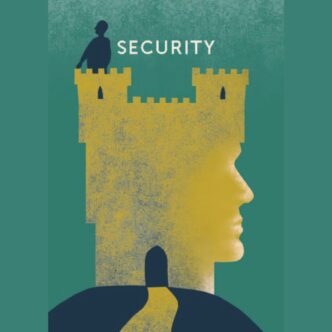Security: the need to feel safe
Staying well – we know we need the right diet and regular exercise. But the need to feel safe is essential too and connected with our survival. How can we calm down when anxiety is triggered?
The need to stay safe
We all need to feel safe in the place that we live, work or study. We all need to a degree of financial security to be sure that we can provide for ourselves and our loved ones. When we feel safe we think clearly and respond to events sensibly while coping with change. When we feel unsafe the brain’s alarm system triggers feelings of stress and anxiety, prompting us to take action – it then becomes very difficult to think clearly about anything other than getting safe!
Ancient survival mechanisms…
Because the need for security is connected with our survival, an ancient part of our brain is dedicated to assessing risk and reacting to keep us safe. This part of our brain, which neuroscientists call the amygdala, can be thought of as our security officer. Our security officer constantly risk assesses what we see hear and smell, to check for signs of danger. If it thinks something is a threat – perhaps an oncoming vehicle when we are driving, or a wasp or aggressive dog – the security officer sounds the alarm by triggering strong emotions like anxiety or anger. This response is known as the fight or flight reaction, and is the same mechanism which underlies anxiety disorders like post-traumatic stress disorder and phobias.
When our need to feel safe is poorly met over a period of time, we can become what psychologists call hyper-vigilant. This means that the security officer is constantly on alert for any kind of threat to our safety or need for control. We are then more vulnerable to becoming overwhelmed by stressful events. Panic attacks occur in response to the security officer perceiving a threat, whether real or not – often the sufferer can be unaware of the cause. How can we reduce the likelihood of being overwhelmed by feelings of stress? Addressing an unmet need for security is the ideal solution, but this may not always be possible. To help though, we can learn skills which help to calm the security officer down.
How to calm your security officer: 7/11 Breathing
Our security officer communicates with our body to alert us when needed and also to relax us. This works by changing the pattern of our breathing; when we need to be alert, our breathing speeds up preparing us for flight or fight; when we need to relax our breathing slows down and the ‘out-breath’ becomes longer. The good news is that we can take control of our breathing pattern to help us. Practising a technique sometimes called diaphragmatic or 7/11 breathing can help us to do this:
- Start by placing your hands on your stomach and breathe in filling your stomach up with air and hold it (many of us tend to shallow breathe most of the time).
- Then breathe out more slowly than when you were breathing in. It is the out-breath which stimulates the relaxation response.
- Repeat this process, counting to 7 in your mind when breathing in, and to 11 when breathing out. The number doesn’t really matter so long as the out-breath is longer than the in-breath. For a really effective exercise, when you know how to do both exercises, combine the two; tightening your muscles when breathing in and relaxing them when breathing out.











